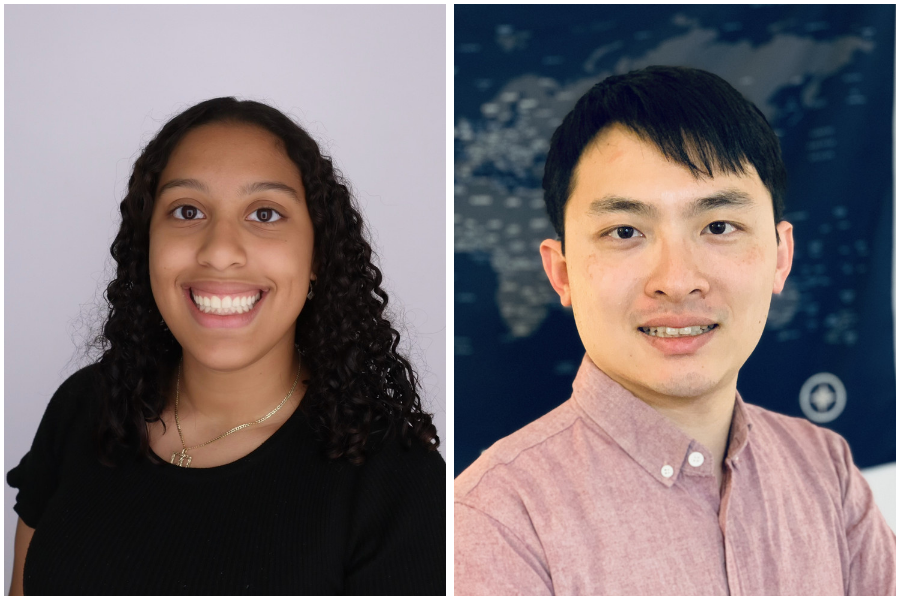
Two BME students named 2024 Generative AI in Healthcare Fellows
By Lia Gold-Garfinkel
Two Carnegie Mellon biomedical engineering Ph.D. students have been named as 2024 Generative AI in Healthcare Fellows. The fellowship comes from the Center for Machine Learning and Health (CMLH) in Carnegie Mellon’s School of Computer Science. The CMLH Fellowships offer current Ph.D. students from different disciplines a chance to conduct their own research with the goal of advancing healthcare.
Ann Badia’s project for the fellowship uses Generative AI (GenAI) to identify antibiotic resistant bacteria and improve diagnostics and treatment plans in oral healthcare. Badia is focusing on periodontal, or gum diseases. “Periodontal diseases can cause tissue destruction, tooth loss, bone damage, and have been linked to systemic health complications such as cardiovascular disease, respiratory infections, and sepsis,” she explains.
Badia discusses how patients can be prescribed antibiotic medications that they don’t need, leading to a number of health issues and negative side effects. “By analyzing how bacteria move and interact with each other, we can better understand the disease process in the body.”
Badia is advised by Tagbo H.R. Niepa, associate professor of chemical engineering and biomedical engineering, whose lab uses a nanoculture platform in order to study hundreds of different bacterial species. Due to the enormous range and diversity of bacterial species, GenAI can be a powerful tool for healthcare providers to rapidly identify deadly pathogens while minimizing human error.
“AI will be a powerful tool to help doctors with diagnostics and manage chronic infection more efficiently,” Badia states. “With generative AI, we can enhance patient care while reducing healthcare cost.”
Keng-Jung (KJ) Lee’s fellowship research will involve the construction of a classification model in order to classify and study diseases at a molecular level by observing with a type of biomarker, DNA methylation which reflects cell status. DNA methylation can be studied using an existing FDA-approved blood test, which Lee intends to incorporate with GenAI technology to possibly simplify and refine the cancer screening process.
“If we want to know the type or characteristics of the cancer cells, conventionally we may need to use a tissue biopsy,” explains Lee, who is advised by Dr. Siyang Zheng. “It's invasive, pricey and can be dangerous.” Furthermore, non-invasive procedures for cancer screening like MRI scans can also be ineffective, as they only offer a “snapshot” of a cancerous tumor with limited sensitivity, and do not provide any molecular information, which limits researchers.
Lee’s proposed classification model has the potential to both be non-invasive and provide detailed, molecular information. The long-term goal, Lee explains, would be a procedure in which patients provide a blood sample that can be processed into his AI classification model. The model runs on a database of the millions of DNA methylation signatures that can be found in human tissue and cells. This would ultimately allow doctors to quickly and effectively identify the type and behavior of cancer cells present in a patient and provide the best care possible.
Cancer itself is extremely diverse both in type and the way in which it presents itself in each individual human. “It’s always better to pick up on this information early, because there's more room for a doctor to provide personalized care,” Lee says.